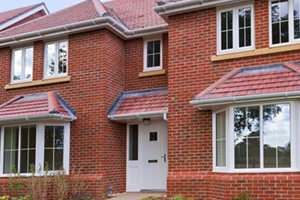
Acoustic Insulation Glazing
Acoustic insulation glazing can help keep noise outside so you can enjoy your living space in peace and quiet.
Noise pollution is a serious issue, particularly when living in an area with high levels of air traffic or busy roads. Too much noise can be damaging to health (increased stress, disrupted sleep). It can also hinder academic learning and concentration.






































